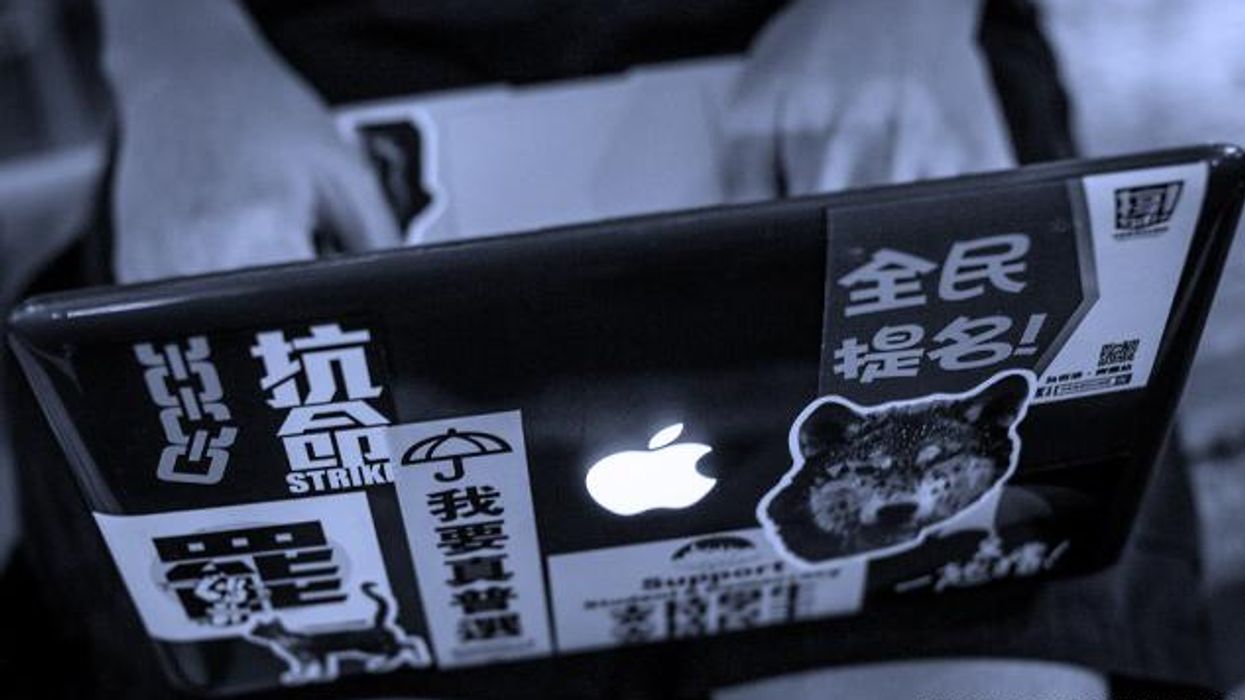Ask the Expert
Ask the Expert: Online Security
PrivateGiant CEO, Shaun Murphy, Offers Tips to Keep Our Information Safe While Traveling

PrivateGiant CEO Shaun Murphy offers tips to keep our information safe while traveling
April 08 2015 1:03 PM EST
By continuing to use our site, you agree to our Privacy Policy and Terms of Use.
Ask the Expert: Online Security

PrivateGiant CEO Shaun Murphy offers tips to keep our information safe while traveling
With a seemingly endless array of mobile devices and an ability to use them almost everywhere we go, worldwide connectivity has become rather commonplace. However, that convenience comes at a cost: an increased likelihood of having your personal information stolen. To help us keep our information safe while traveling, we asked for some advice from Shaun Murphy, the CEO of PrivateGiant, a soon-to-launch tech firm that will provide easy-to-use solutions for keeping text messages, emails, and social media messages secure. Here’s what he had to say:
Prep Before You Go
Patch Up. Check all devices staying at home or going on the trip for software updates. Not running system updates is like putting out the welcome mat for cybercriminals. Operating system security holes that could have easily been patched with a quick click can leave you vulnerable to hacks.
Remove Data. Backing up is always important, but before you travel it is essential. Removing unnecessary sensitive data from your devices going on the trip including photos, videos, financial documents and stored passwords can save you from heartache and headaches down the road if your devices are breached, stolen or misplaced.
Wipe Your History. Clear your browser cache files and remove saved passwords. If you accidentally connect to an unsecure Wi-Fi network while travelling do not make it effortless for criminals to steal your private information such as bank access, work emails or photos.
Fake It. Create temporary passwords for sites you plan on accessing while travelling. It is estimated that 60% of people use the same password, or a variation of one, for every account. If you get hacked while traveling, having a temporary “throwaway” password for email or social media will prevent a headache of worry over if your home accounts were compromised.
While Traveling
Pay Up. Avoid logging onto free Wi-Fi networks that are unsecure. If you do not have to ask a store or restaurant owner or employee for a password it isn’t worth saving a few dollars to check your email for free. It could end up costing you a lot more in the long run if a hacker has set up a benign looking “free” network that he or she is using to read everything on your computer.
Browse Safely. Make sure you are using a secured connection to websites when available. A simple “s” (https:// instead of https:// in your web browser's URL bar) will protect you from most threats local and remote. The Electronic Frontier Foundation has created a utility that will automatically use a secure connection for you. Learn more about it at https://www.eff.org/Https-everywhere.
Double Down.Enable two-factor authentication on your important web services (email, social media, etc.) so in the event that someone does gain access to your passwords they need a second code to get in. Guidelines for setting up two-factor authentication can be found at https://www.google.com/landing/2step/.
Privatize Wi-Fi. For additional security when using a Wi-Fi network at a hotel or airport, consider using a VPN on your laptop. A VPN creates an encrypted connection to a third-party server, and all your Internet traffic is routed through that server. Snoopers on the network will only see encrypted data.
Share Wisely. While it is tempting to post about a vacation on social media or keep a blog about your adventures to stay in touch with family and friends, resist the urge. Every tidbit of information you publicly share online is a breadcrumb criminals can use to piece together a snapshot of your life that can lead to them to cracking your passwords and hacking your digital accounts.
Shut Down. Switch off the wireless connection on your phone, tablet and laptop when they are not in use. By keeping the connection off you are taking another step in protecting your digital identity, by preventing an opportunity for criminals to automatically connect to your device on an open network without you ever knowing what happened.
After Returning Home
Sweep Clean. Running a security sweep when you get home is a wise precaution. Check your computer and other devices for spyware, malware, and viruses. One indication that malware could be looking is an increase in memory use or data use that is otherwise inexplicable.
For more information about PrivateGiant, visit privategiant.com.